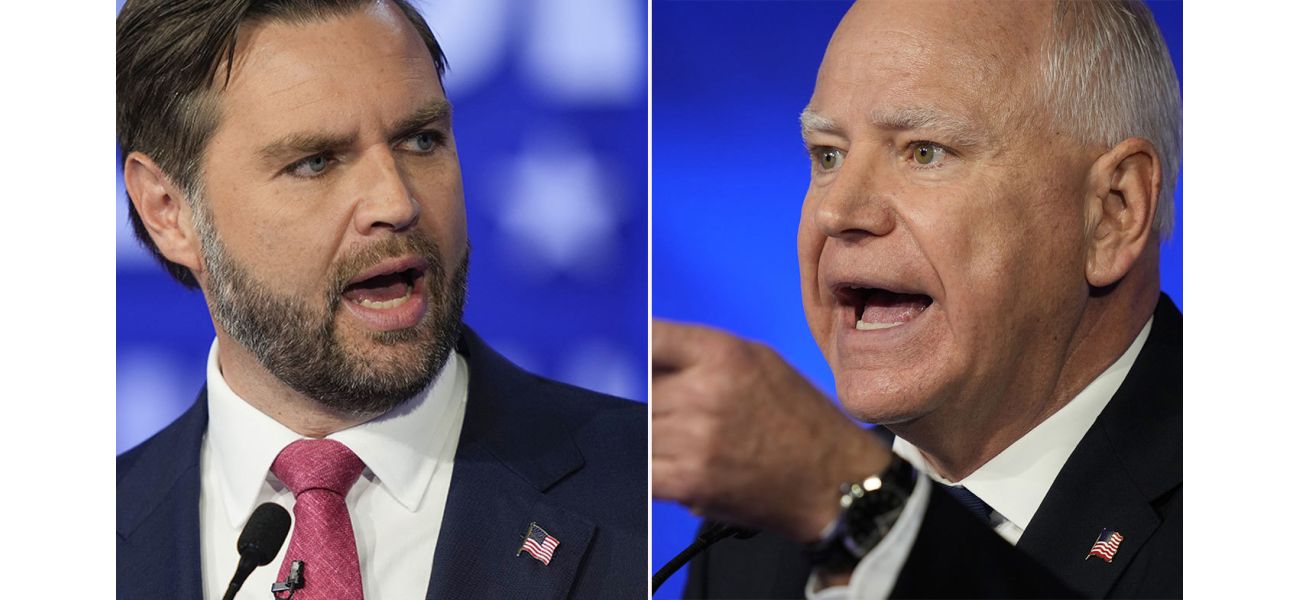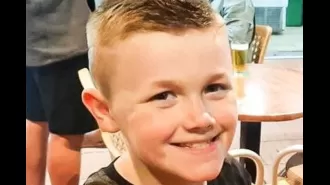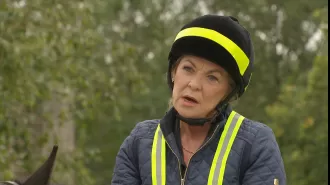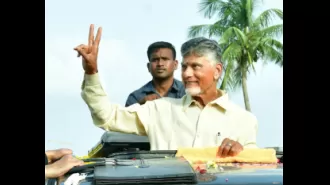Vance and Walz engage in a heated vice presidential debate.
Tim Walz and JD Vance, the two vice presidential candidates, faced off in a potentially final major event of the election.
October 2nd 2024.

The stage was set for a highly anticipated showdown between Vice Presidential candidates Tim Walz and JD Vance. This event, which may very well be the final major one of the presidential election, saw the Democratic Governor of Minnesota and the Republican Senator from Ohio fiercely debate a range of critical policy positions. However, unlike the heated exchanges of the earlier presidential debates, the tone was much more restrained and civil.
Throughout the debate, both candidates made a conscious effort to mention their families and even found common ground on certain issues. However, with the majority of voters having already made up their minds, it's unlikely that this event will have a significant impact on the election outcome.
As the debate kicked off, it was clear that Walz was feeling the pressure, while Vance appeared more composed. However, as the debate progressed, Walz gained confidence and began to hold his own. Meanwhile, Vance found himself in a tricky spot, having to defend some of President Donald Trump's controversial policies.
One of the issues that came up was climate change, and when asked about Trump's belief that it was a hoax, Vance skillfully dodged the question. Instead, he focused on criticizing China's dominance in the solar panel manufacturing industry and called for the production of more solar panels in the US to reduce the economy's carbon footprint. On the other hand, Walz highlighted Trump's questionable actions, such as taking oil company executives to Mar-a-Lago and soliciting campaign funds from them. He firmly believed that the US could do better and make smarter decisions when it comes to tackling climate change.
The topic of immigration also sparked a heated discussion between the two candidates. Vance accused Harris of enabling Mexican drug cartels to operate freely in the US and using children as drug mules. He also highlighted the record number of illegal crossings and fentanyl entering the country. However, Walz pointed out that these allegations were baseless and criticized Trump's comments about Haitian migrants in a town in Ohio. He reminded the audience that the Republican Governor of that town had confirmed that Trump's claims were false and expressed his concern about the dehumanizing rhetoric used towards immigrants.
The economy was also a hotly debated topic, with Walz being asked how Harris plans to pay for her ambitious economic plan without increasing the deficit. While he did not specifically address the cost, Walz pointed out Trump's record of increasing the national debt by $8 trillion with his tax cuts for the wealthy. On the other hand, Vance was questioned about Trump's economic policies, which are estimated to increase the deficit by $5.8 trillion. He criticized Harris for driving up the cost of food and housing, opening the southern border, and making middle-class life unaffordable. Walz then took a jab at Trump's personal taxes, questioning why the average American is paying their taxes while the President has not paid any in the last 15 years.
As the debate continued, Walz was pressed on a statement he had made in the past about being in Hong Kong during the Tiananmen Square massacre. Several media outlets had found that Walz had not traveled to Asia until two months after the event took place. In response, he clarified that he had misspoken and had been in Hong Kong and China during the democracy process, which had taught him valuable lessons about governance.
Vance was also questioned about some past statements he had made regarding Trump's economic populism. He admitted that he had been wrong in believing some of the media's false claims and fabrications about Trump's record.
The debate also touched on the highly divisive issue of abortion, with Walz passionately speaking about the importance of protecting women's reproductive rights. He shared a specific instance of a woman in Texas who nearly died due to complications from being denied an abortion. This emotional moment highlighted the importance of having access to safe and legal abortion services.
In the end, while both candidates had their moments, it remains to be seen if this debate will have any significant impact on the election. Only time will tell as the country eagerly awaits the final results.
In what may be the final major event of the presidential election, vice presidential candidates Tim Walz and JD Vance faced off in a debate. The two men, representing the Democratic and Republican parties respectively, discussed important policy positions while maintaining a more restrained tone than previous debates.
Throughout the debate, both Walz and Vance made a point to mention their families and even found common ground on certain issues. However, with the majority of voters already having made their decision, it is unlikely that this event will have a significant impact on the election's outcome.
At the start of the debate, Walz appeared visibly nervous while Vance remained composed. As the discussion progressed, Walz gained confidence while Vance found himself in the awkward position of defending some of President Donald Trump's controversial policies.
One topic that was brought up was climate change. When asked if he agreed with Trump's belief that it was a hoax, Vance avoided directly answering the question and instead criticized China's dominance in the solar panel industry. Walz, on the other hand, called out Trump for his remarks to oil company executives, where he essentially offered to allow them to do whatever they wanted in exchange for campaign contributions.
Immigration was another hot topic during the debate. Vance made controversial statements accusing Kamala Harris of enabling Mexican drug cartels and using children as drug mules. Walz refuted these claims as false and criticized Trump and Vance for their comments about Haitian migrants, specifically mentioning Trump's false claim that they were eating dogs and cats in the town of Springfield, Ohio.
The economy was also a major point of discussion. Walz was asked about Harris' $1.2 trillion economic plan and how she plans to pay for it without increasing the deficit. While Walz did not directly address the question, he pointed out Trump's record of increasing the national debt by $8 trillion. Vance, on the other hand, criticized Harris for driving up the cost of food and housing and making middle-class life unaffordable. Walz also took a jab at Trump for not paying taxes for the past 15 years.
One particularly tense moment occurred when Walz was questioned about a statement he had made in the past about being in Hong Kong during the Tiananmen Square massacre. However, it was later discovered that he had not actually traveled to Asia until two months after the incident. Walz clarified that he misspoke and had actually been in Hong Kong during the democracy process.
Vance was also questioned about his past statements on Trump's economic policies, to which he admitted that he was wrong about the president and had been misled by false media stories.
The topic of abortion also came up, with Walz highlighting the importance of a woman's right to choose by mentioning a specific case in Texas where a woman nearly died due to complications from being denied an abortion.
Overall, the debate between Walz and Vance offered a more civil and respectful discourse compared to the presidential debates. However, with the election drawing near and the majority of voters having already made up their minds, it is unlikely that this event will have a significant impact on the outcome.
Throughout the debate, both candidates made a conscious effort to mention their families and even found common ground on certain issues. However, with the majority of voters having already made up their minds, it's unlikely that this event will have a significant impact on the election outcome.
As the debate kicked off, it was clear that Walz was feeling the pressure, while Vance appeared more composed. However, as the debate progressed, Walz gained confidence and began to hold his own. Meanwhile, Vance found himself in a tricky spot, having to defend some of President Donald Trump's controversial policies.
One of the issues that came up was climate change, and when asked about Trump's belief that it was a hoax, Vance skillfully dodged the question. Instead, he focused on criticizing China's dominance in the solar panel manufacturing industry and called for the production of more solar panels in the US to reduce the economy's carbon footprint. On the other hand, Walz highlighted Trump's questionable actions, such as taking oil company executives to Mar-a-Lago and soliciting campaign funds from them. He firmly believed that the US could do better and make smarter decisions when it comes to tackling climate change.
The topic of immigration also sparked a heated discussion between the two candidates. Vance accused Harris of enabling Mexican drug cartels to operate freely in the US and using children as drug mules. He also highlighted the record number of illegal crossings and fentanyl entering the country. However, Walz pointed out that these allegations were baseless and criticized Trump's comments about Haitian migrants in a town in Ohio. He reminded the audience that the Republican Governor of that town had confirmed that Trump's claims were false and expressed his concern about the dehumanizing rhetoric used towards immigrants.
The economy was also a hotly debated topic, with Walz being asked how Harris plans to pay for her ambitious economic plan without increasing the deficit. While he did not specifically address the cost, Walz pointed out Trump's record of increasing the national debt by $8 trillion with his tax cuts for the wealthy. On the other hand, Vance was questioned about Trump's economic policies, which are estimated to increase the deficit by $5.8 trillion. He criticized Harris for driving up the cost of food and housing, opening the southern border, and making middle-class life unaffordable. Walz then took a jab at Trump's personal taxes, questioning why the average American is paying their taxes while the President has not paid any in the last 15 years.
As the debate continued, Walz was pressed on a statement he had made in the past about being in Hong Kong during the Tiananmen Square massacre. Several media outlets had found that Walz had not traveled to Asia until two months after the event took place. In response, he clarified that he had misspoken and had been in Hong Kong and China during the democracy process, which had taught him valuable lessons about governance.
Vance was also questioned about some past statements he had made regarding Trump's economic populism. He admitted that he had been wrong in believing some of the media's false claims and fabrications about Trump's record.
The debate also touched on the highly divisive issue of abortion, with Walz passionately speaking about the importance of protecting women's reproductive rights. He shared a specific instance of a woman in Texas who nearly died due to complications from being denied an abortion. This emotional moment highlighted the importance of having access to safe and legal abortion services.
In the end, while both candidates had their moments, it remains to be seen if this debate will have any significant impact on the election. Only time will tell as the country eagerly awaits the final results.
In what may be the final major event of the presidential election, vice presidential candidates Tim Walz and JD Vance faced off in a debate. The two men, representing the Democratic and Republican parties respectively, discussed important policy positions while maintaining a more restrained tone than previous debates.
Throughout the debate, both Walz and Vance made a point to mention their families and even found common ground on certain issues. However, with the majority of voters already having made their decision, it is unlikely that this event will have a significant impact on the election's outcome.
At the start of the debate, Walz appeared visibly nervous while Vance remained composed. As the discussion progressed, Walz gained confidence while Vance found himself in the awkward position of defending some of President Donald Trump's controversial policies.
One topic that was brought up was climate change. When asked if he agreed with Trump's belief that it was a hoax, Vance avoided directly answering the question and instead criticized China's dominance in the solar panel industry. Walz, on the other hand, called out Trump for his remarks to oil company executives, where he essentially offered to allow them to do whatever they wanted in exchange for campaign contributions.
Immigration was another hot topic during the debate. Vance made controversial statements accusing Kamala Harris of enabling Mexican drug cartels and using children as drug mules. Walz refuted these claims as false and criticized Trump and Vance for their comments about Haitian migrants, specifically mentioning Trump's false claim that they were eating dogs and cats in the town of Springfield, Ohio.
The economy was also a major point of discussion. Walz was asked about Harris' $1.2 trillion economic plan and how she plans to pay for it without increasing the deficit. While Walz did not directly address the question, he pointed out Trump's record of increasing the national debt by $8 trillion. Vance, on the other hand, criticized Harris for driving up the cost of food and housing and making middle-class life unaffordable. Walz also took a jab at Trump for not paying taxes for the past 15 years.
One particularly tense moment occurred when Walz was questioned about a statement he had made in the past about being in Hong Kong during the Tiananmen Square massacre. However, it was later discovered that he had not actually traveled to Asia until two months after the incident. Walz clarified that he misspoke and had actually been in Hong Kong during the democracy process.
Vance was also questioned about his past statements on Trump's economic policies, to which he admitted that he was wrong about the president and had been misled by false media stories.
The topic of abortion also came up, with Walz highlighting the importance of a woman's right to choose by mentioning a specific case in Texas where a woman nearly died due to complications from being denied an abortion.
Overall, the debate between Walz and Vance offered a more civil and respectful discourse compared to the presidential debates. However, with the election drawing near and the majority of voters having already made up their minds, it is unlikely that this event will have a significant impact on the outcome.
[This article has been trending online recently and has been generated with AI. Your feed is customized.]
[Generative AI is experimental.]
0
0
Submit Comment





